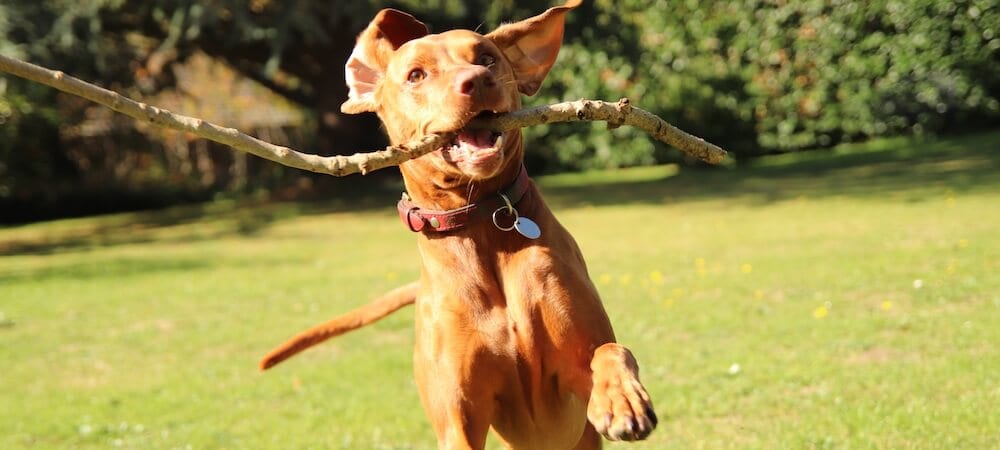Summer Health Tips for Pets

Summer doesn’t just bring with it warmer weather. It also brings out fleas, ticks and dehydration. You might even want to switch up your pet’s diet during this time of year. Here are summer health tips for pets.
Put Your Pet on a Flea and Tick Preventative
If your pet isn’t already on one, you need to give your cat or dog a flea and tick preventative. This is a must for all pets all year round — even if they live indoors. It’s a misconception that pets only need a preventative during flea and tick season. Talk to your vet about different options. Both topical and oral preventatives work great.
During the summer you should be on the lookout for flea infestations. You can frequently spot the “flea dirt” on your pet’s fur. It looks like fine black grime that turns red in water. Infestations are generally also accompanied by hair loss, skin irritation, pale gums and lots of biting, licking and scratching. Your pet can also get tapeworms from fleas!
A few flea and tick pointers:
- Don’t put your cat on a dog preventative and vice versa or else your animal could get sick.
- If you discover fleas on your pet, you can’t just treat your animal. You need to clean your whole home to ensure the pests aren’t hiding in your carpet and floorboards.
- Flea shampoos and dips are great for killing fleas but they aren’t enough to prevent future infestations.
Keep Your Pet Hydrated
While our pets are mammals just like us, they actually don’t regulate their body temperature like we do. This is why it’s so important that they stay hydrated. This is even more true during the warmer months when pets’ bodies need even more water.
As a rule, dogs need at least 1 ounce of water for every pound of body weight every day. In other words, a 50-pound dog needs to drink 50 ounces of water each day. That’s more than 6 cups!
Be sure to always leave a bowl of cool water out for your pets. Even if you leave home with them, bring a bowl and a water bottle with you. We’re particularly fond of collapsible water bowls that you can fold up on the go.
Don’t Leave Your Pet in a Parked Car
Never ever, under any circumstances, should you leave your pet in a parked car during the summer. It’s simply too hot out. Even if you’re just dashing into the store for a quick errand and parking in the shade, it’s still too hot out. In fact, on a 70-degree day, parked cars can warm up to dangerous temperatures in mere minutes. So while we know you love having your pet tag along on trips to the pharmacy and grocery store, they’re better off left at home during this time of year.
You Might Need to Change Your Pet’s Diet
It’s not unusual for pets to experience a change in weight during the warmer months. This is frequently attributed to a change in calories or exercise. If you notice your pet packing on some pounds, it’s probably time to cut back on calories. We first recommend taking treats out of their diet. Then you might want to speak to your vet about either decreasing your pet’s food portions or even switching them to a low-calorie pet food.
However, you might also notice that your pet actually might be losing weight during the summer. After all, a lot of animals are more active when the days are longer and the weather is warmer. In this case, you might want to slightly increase your pet’s food portions.



